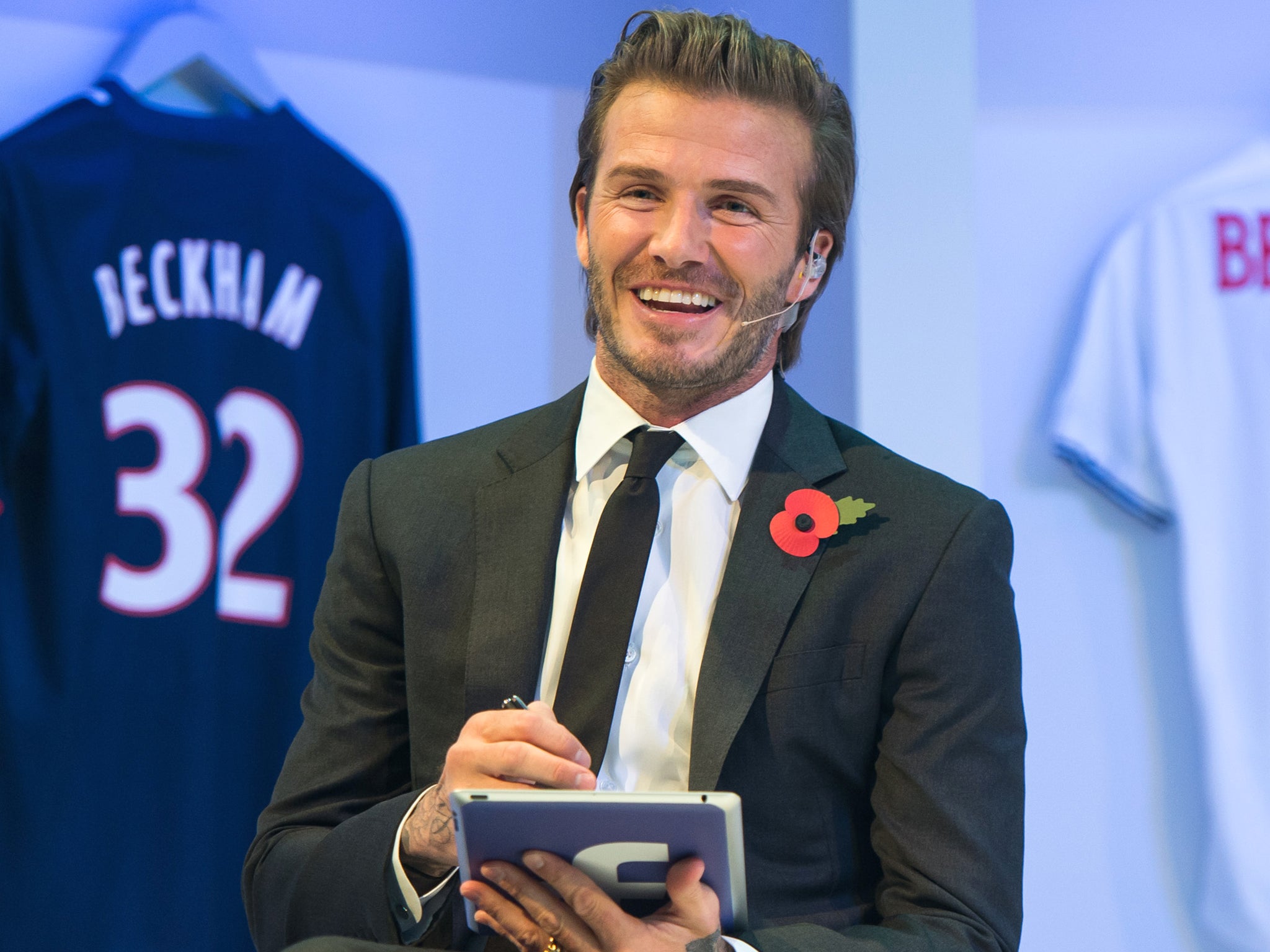David Beckham enters the soccer graveyard: Does he have golden touch to make game work in Miami, where so many have failed?

With Los Angeles and New York unavailable, Miami has long been the obvious location for David Beckham to take up his option on running a Major League Soccer franchise. Not only is it the largest US metropolitan area not to have an MLS team, it is one of America's trendiest cities.
Beckham would fit seamlessly into the South Beach scene, maybe buying a house on Star Island alongside Gloria Estefan, Shaquille O'Neal, Will Smith and P Diddy, from where he could pop over to Andy Murray's downtown penthouse for dinner. Working out in Lummus Park, sipping cocktails poolside at the Clevelander on Ocean Drive, strolling the beach with his family. It is easy to envisage Beckham in Miami.
The problem is the football, or soccer as the locals call it, when they think of it at all. Miami is one of the dozen American conurbations which has a major league team in each of the four big sports: gridiron, basketball, baseball and ice hockey. But not only does it not have an MLS team – if it had Beckham would not be allowed to start one, as is the case with LA and New York – it does not have a team in the second-tier North American Soccer League either.
There is a reason for this. Soccer teams in Miami lose money. Then they move 25 miles north to Fort Lauderdale, which at least has a soccer heritage, and try and survive there.
Miami does have soccer fans. Two years ago, 70,080 watched a match at the Sun Life Stadium, home of NFL's Miami Dolphins. Which is perhaps why the MLS executive vice-president Dan Courtemanche said this week: "We know that Miami is one of the most passionate soccer markets in North America."
However, that game was between Mexican giants Chivas and Barcelona. The last time the US national team played there, in 2011, just over 21,000 watched them play Honduras, many supporting the opposition. Which is why the US have played there only once since 2004. The lowest average attendance in MLS history was recorded by Miami Fusion, the MLS's previous Miami franchise, who pulled in 7,460 in 2000. A year later they folded.
But Fusion did not play in Miami, they played in Fort Lauderdale. That is where, in the 1970s US soccer boom, George Best and Gordon Banks played for the Strikers in the old NASL (North American Soccer League). Both brands have been exhumed, along with the New York Cosmos, but the modern-day Strikers play to sub-5,000 crowds.
Can Beckham buck this history? Maybe. The celebrity status Sir Alex Ferguson so despised is the critical factor. The Fusion, seeking to tap into the area's huge Hispanic immigrant community, played Carlos Valderrama, the big-haired Colombian midfielder, alongside more prosaic talents such as former West Ham and Manchester City midfielder Ian Bishop and ex-Nottingham Forest winger Ian Woan.
But as well as poor gates, corporate interest was slim, which contributed to their demise. Initially, at least, Beckham will attract both constit- uencies. So is it just a vanity project, something to keep Beckham busy in retirement in a nice location? Maybe not, because Beckham is not the only investor with an eye on Miami.
Stephen Ross, who owns the Dolphins, has expressed interest and Alessandro Butini, a London-based Italian, has gone so far as to reveal his plans. The 40-year-old banker told SI.com earlier this month he planned to build a new soccer-specific 18,000-20,000 stadium in or near downtown Miami for $70-$90m (£43m-£56m).
Beckham, by contrast, appears to be considering a ground-share either at the Sun Life or the more modest Florida International University stadium. The FIU is more suitable – but is out in the western suburbs. It was the first home of Miami FC, who played the league below MLS, in 2006. But three years later they had had enough and became the aforementioned Fort Lauderdale Strikers.
Beckham has the advantage over his rivals of a deal with MLS which allows him to buy a franchise for a bargain $25m (Manchester City paid $100m for the New York City FC franchise), but it is reported he must exercise that by the end of this year.
"It is hard to start a new team," he said during his book promotion, "but I want to bring a certain amount of history to my MLS team. Miami is one of those places – there were a few others we looked at – and I'm passionate about that and being an owner of a team is something I feel passionate about."
Beckham, who ruled out managing the club himself, tends to be successful at most things, but this will only work if he devotes himself to it, because it will need regular dustings of his stardust to succeed.
No bad book feelings: I want Fergie as manager!
David Beckham reacted with humour to Alex Ferguson's criticism of him in his recent autobiography, suggesting he wanted to hire his former manager at Manchester United to take charge of his MLS franchise. "I'm not going to be negative about a man who let me play for my boyhood team," said Beckham at the launch of his own latest book. "I was lucky to play under Sir Alex Ferguson for 12 years and he's truly the best. We looked at him as a father figure. He was one of the first people I was going to call to be manager for my new MLS side."
Subscribe to Independent Premium to bookmark this article
Want to bookmark your favourite articles and stories to read or reference later? Start your Independent Premium subscription today.

Join our commenting forum
Join thought-provoking conversations, follow other Independent readers and see their replies